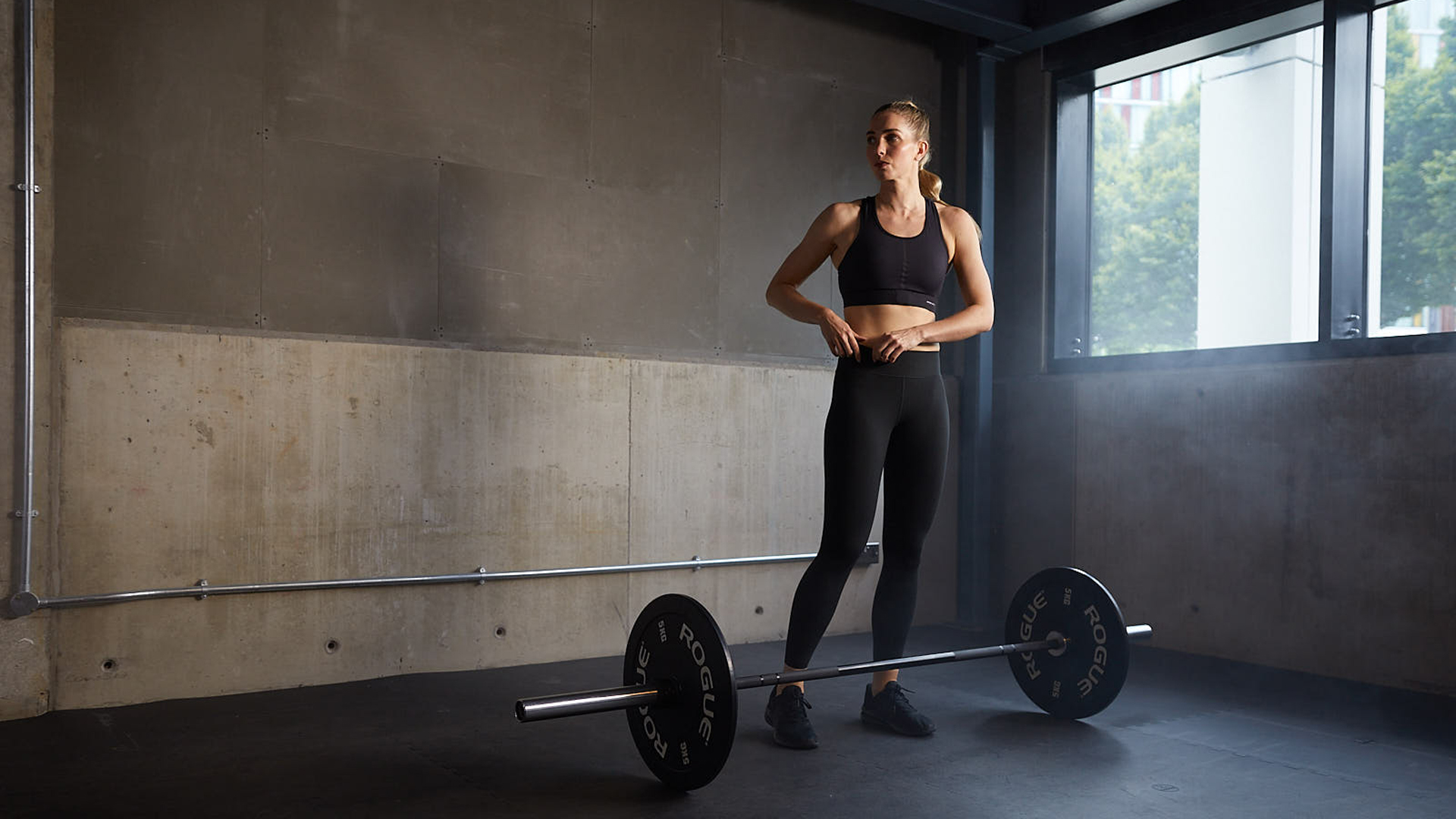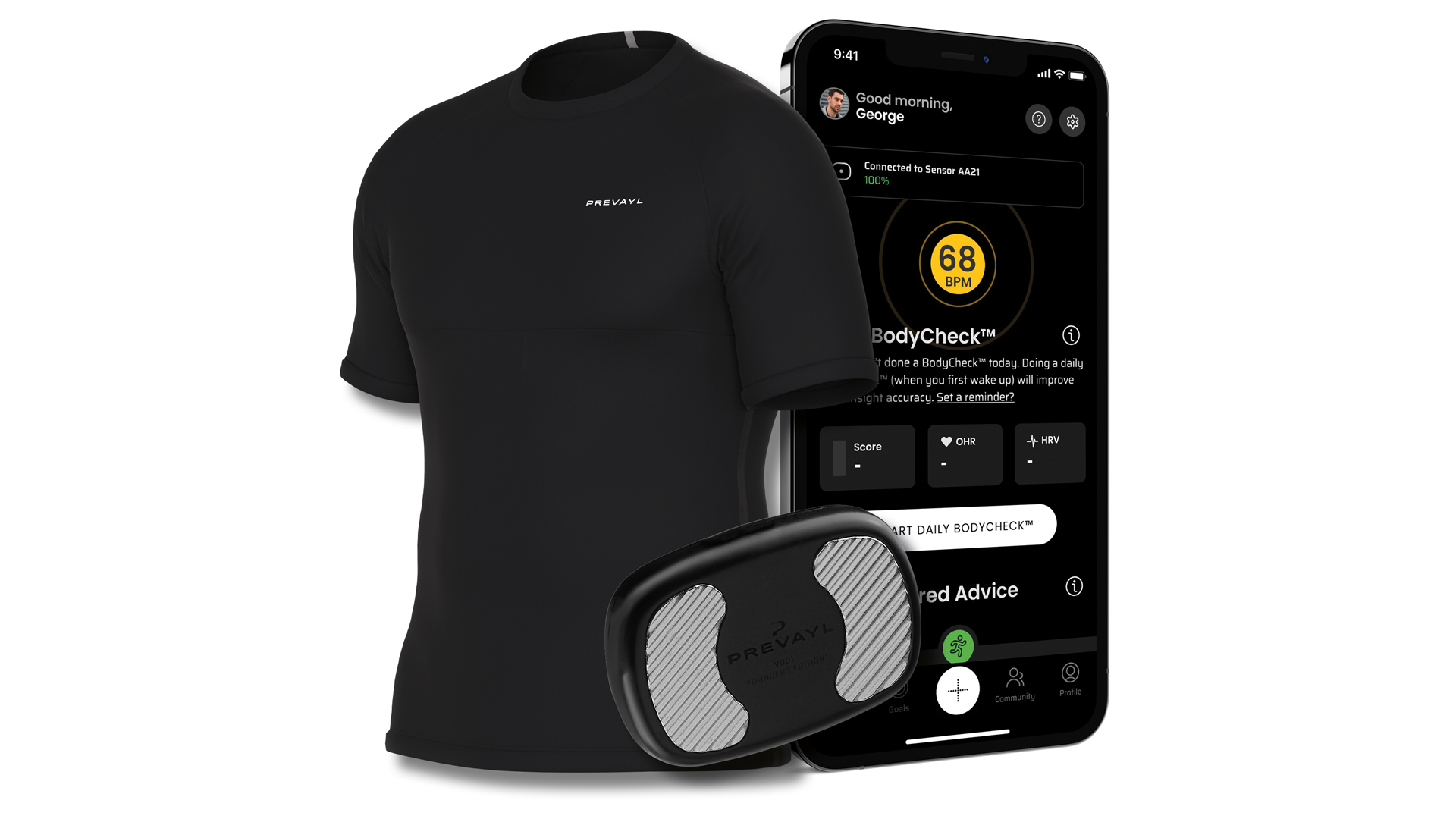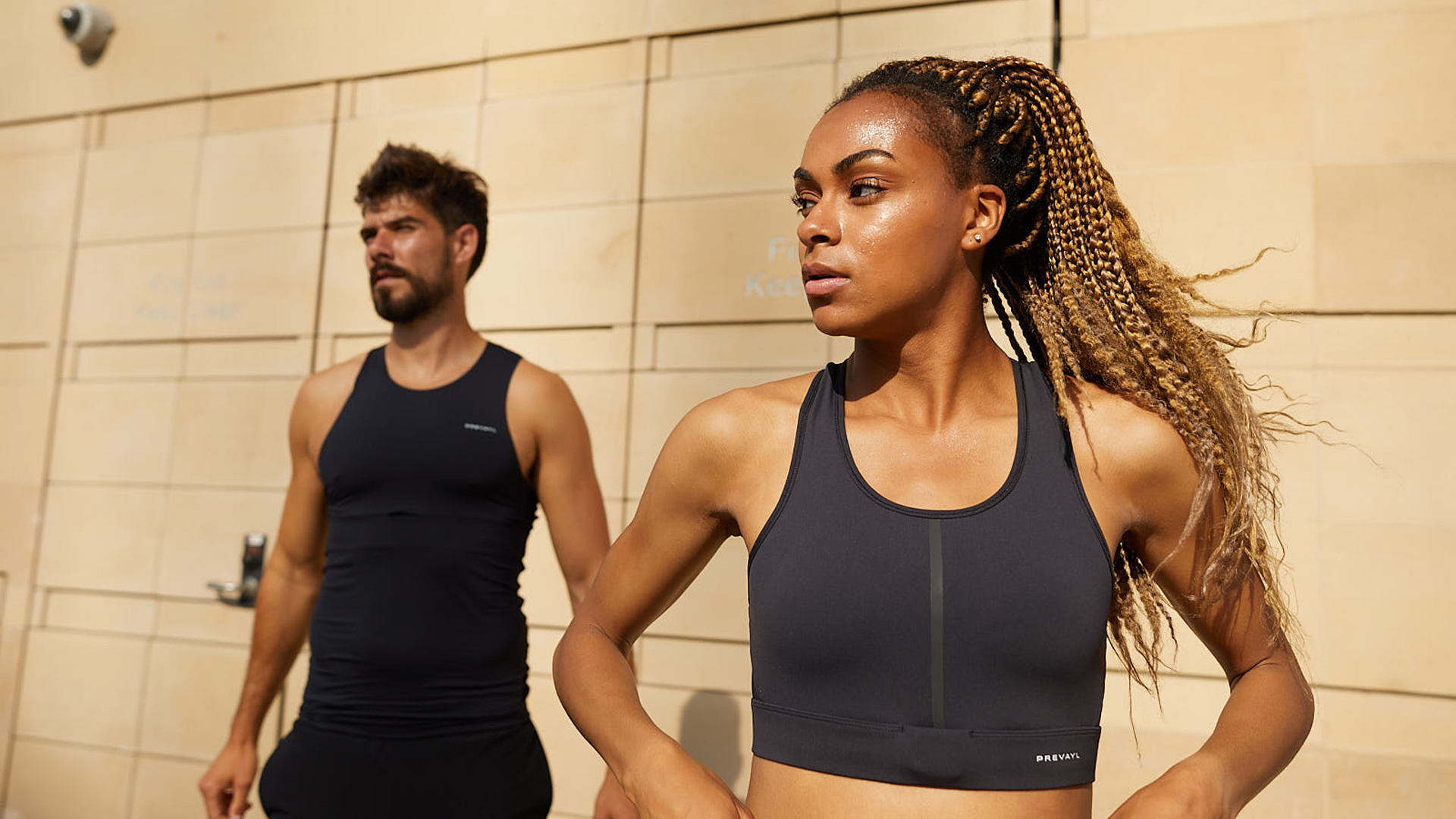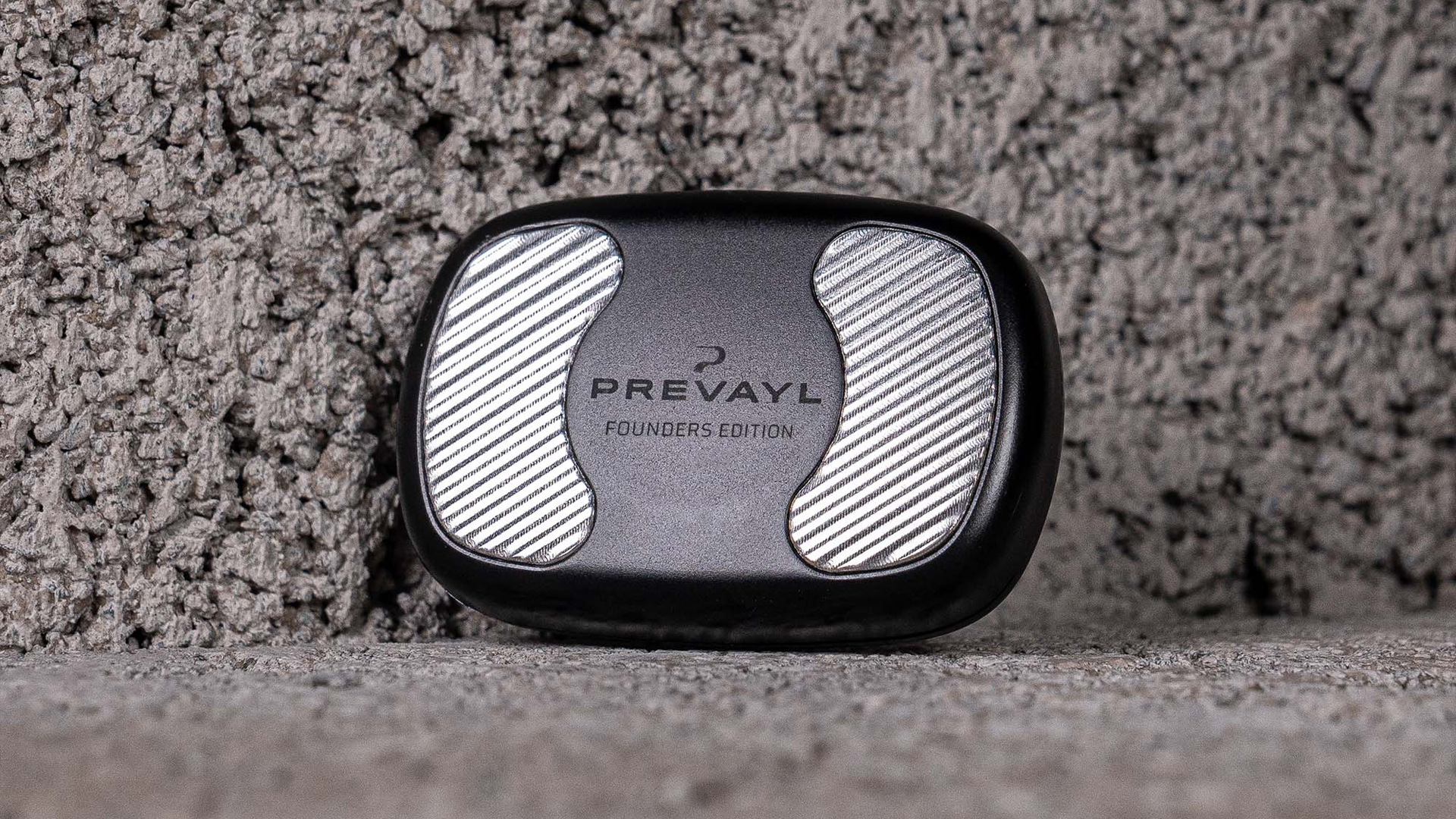This smart gym wear takes on Garmin and Fitbit with the 'world's most accurate' sensors. Here's my view…
Prevayl SmartWear starts with cardio-sensing tops and will grow to include a full range of kit


It's very hard to challenge the dominance of Garmin and Fitbit when it comes to fitness tracking wearables but Manchester, England's Prevayl is the latest challenger to the crown. Its approach is different in two ways. Firstly its sensors are built into clothing – starting with a t-shirt, bra and tank (or 'vest' if you're over 40). Secondly, founder and CEO Adam Crofts sees Prevayl as an 'athleisure' brand – although he did apologise for using that word – that is based around that sensor-equipped SmartWear. So while the cardio-tracking, early garments will be the 'core' – no pun intended – products, Crofts sees Prevayl as being essentially a clothing and lifestyle brand. So quite different to Garmin and Fitbit.
Does it have any chance of gaining a foothold in the fitness wearable market, which is already jam-packed with the best running watches and fitness trackers, not to mention the Apple Watch? I guess we'll find out…

So how will Prevayl prevail? Firstly it claims to have the world's most accurate fitness tracking. Now that is quite a boast. Whether it's strictly true or not, its sensor should be more accurate than any watch from Garmin, Fitbit, Apple or anyone else. That's because it is a chest-mounted ECG rather than an optical sensor worn on your wrist. There's nothing new about that idea. Chest strap heart rate monitors predate the optical ones used in watches and fitness trackers by many years, and are closer to what is used in a hospital. There are so many chest straps available that we even have a guide to the best heart rate monitors that is full of them.
Chest straps are great but they are perceived as being cumbersome and a bit old fashioned. What Prevayl wants to do is bring the chest strap back into fashion (literally), by placing it inside some attractive athleisure wear. Myzone has dabbled in this area before but I would describe that as very much a fitness tracking brand that happens to make a bra and a vest, whereas Prevayl is more fashion forward, so to speak.
So Prevayl claims 'clinical grade' heart rate tracking accuracy. It then takes that raw cardio data and turns it into '1,000 data points per second'. That means you can track your fitness improvements and get suggestions on how intense today's workouts should be – and also when you should be taking a rest.
Prevayl also claims to have 'the world's most advanced algorithm' to guide your training. It also has various movement sensors, to 'build a complete fitness profile'. So you certainly can't fault the brand for hyperbole. What is almost certainly true is that, by virtue of including an electrical heart rate sensor that reads from your chest, it genuinely is almost certainly more accurate than any watch or wrist strap from the aforementioned likes of Fitbit, Garmin, Apple et al.
The sensor is extremely light and clips very neatly into your choice of shirt, vest – sorry, 'tank' – or bra. Its battery is good for 10 days of use, which also compares well with most watches and trackers. Although the general idea for now is only to wear your Prevayl for exercise, CEO Adam Crofts suggests the brand could eventually make sensor-bearing garments that you wear all day, to give even more health and fitness insights. Oh, and obviously, do remember to unclip the sensor before you put your top in the wash.
Get all the latest news, reviews, deals and buying guides on gorgeous tech, home and active products from the T3 experts

Prevayl Smartwear: flat stomach not included
The SmartWear tee that Prevayl sent me is a bit nondescript in terms of styling. It's a standard workout top that comes in any colour you like, so long as it's dark grey. Still, it's a very comfortable and well made t-shirt and certainly not un-stylish. The fit is a bit unforgiving on my post-lockdown dad bod if I am being perfectly honest, but you could see that as a good motivation to get fitter, right?
We'll have a full review of Prevayl soon but my initial impressions are positive. Chest straps are just a better way to track cardio fitness than watches, and if you can make putting one on as easy as pulling on a shirt or putting on a bra, that makes them a much more attractive proposition.
On the down side, obviously a screen-less device attached to your chest is less useful for getting instant feedback on your fitness data as you work out. Yes, you can connect your phone and look at that as you train, but that is less convenient than glancing at your wrist. The other problem Prevayl has is that Apple, Garmin and Fitbit have massive user bases who are locked into their eco-systems. Will those users want to leave in order to try an unfamiliar app and start collecting data from scratch all over again? Well, I am not so sure.
Prevayl's CEO seems to be of the opinion that the full range of Prevayl clothing – which won't feature sensors, and will be branded as PerformanceWear – will be a hit, and that SmartWear's success will follow from that. That's very different to putting out a fitness tracker and hoping to scoop up Garmin, Fitbit and Apple users and it could work.
What's not up for debate is that Prevayl has so far made some very professional athleisure wear and paired it with a lightweight and accurate sensor to track your fitness 'journey'. Quite where that journey goes remains to be seen, but I can see Prevayl SmartWear being a hit with more experienced gym goers and runners. From what I've seen of the PerformanceWear, that's pretty smart (in a different way) as well.
Prevayl SmartWear: price and availability

A starter kit with one garment – a choice of t-short or bra – and the SmartWear sensor costs £220. Alternatively, you can get the tank and a sensor for £210 – bargain.
Prevayl is UK only at launch but pricing in the USA and Australia would be from $285 or AU$400 if a straight exchange rate were used.

Duncan is the former lifestyle editor of T3 and has been writing about tech for almost 15 years. He has covered everything from smartphones to headphones, TV to AC and air fryers to the movies of James Bond and obscure anime. His current brief is everything to do with the home and kitchen, which is good because he is an excellent cook, if he says so himself. He also covers cycling and ebikes – like over-using italics, this is another passion of his. In his long and varied lifestyle-tech career he is one of the few people to have been a fitness editor despite being unfit and a cars editor for not one but two websites, despite being unable to drive. He also has about 400 vacuum cleaners, and is possibly the UK's leading expert on cordless vacuum cleaners, despite being decidedly messy. A cricket fan for over 30 years, he also recently become T3's cricket editor, writing about how to stream obscure T20 tournaments, and turning out some typically no-nonsense opinions on the world's top teams and players.
Before T3, Duncan was a music and film reviewer, worked for a magazine about gambling that employed a surprisingly large number of convicted criminals, and then a magazine called Bizarre that was essentially like a cross between Reddit and DeviantArt, before the invention of the internet. There was also a lengthy period where he essentially wrote all of T3 magazine every month for about 3 years.
A broadcaster, raconteur and public speaker, Duncan used to be on telly loads, but an unfortunate incident put a stop to that, so he now largely contents himself with telling people, "I used to be on the TV, you know."